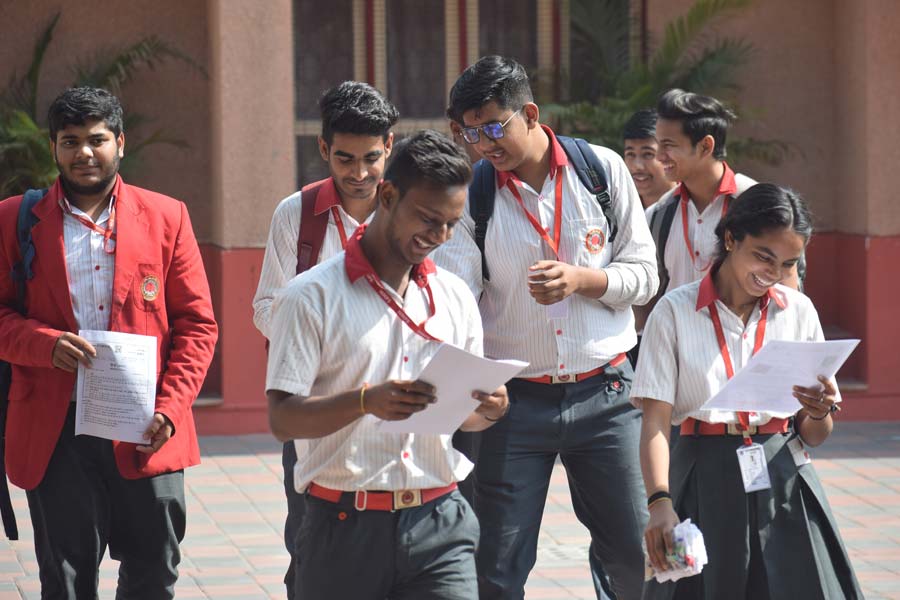Vocational education – The need of the hour


Imagine a classroom where a teacher is teaching coordinate geometry, trigonometry, or a prose or poem. Many students might sit there wondering, "Why do we need to learn this?" This is a common question, especially when the focus seems to be on scoring marks for exams rather than understanding the relevance of these concepts in real life.
For example, coordinate geometry isn't just about plotting points on a graph. It helps in fields like architecture, engineering, and even navigation systems like GPS. Trigonometry is vital in areas such as construction, aviation, and even video game design. Similarly, prose and poetry teach us about emotions, perspectives, and human experiences, helping us to communicate better and understand the world around us.
If students understand these real-life applications, learning becomes more meaningful. They see that education is not just about passing tests but about developing skills and knowledge that can shape their future careers and daily lives.
Now, why is this important?
Schools of today have a bigger responsibility of preparing children for the future. In the age of technology where jobs are getting obsolete, how should schools prepare the children for jobs that do not even exist today? This is a challenge that may seem farfetched, as even in today’s scenario there is a demand and supply deficit of skilled workers in the industry. There is a deficit in skilled workers in almost all spheres like Health care, Education, Manufacturing, Technology, Media and arts etc.
How do we bridge this gap?
a. At the policy level
To bridge this skill gap, the government of India has taken initiaves at both the school curriculum level and at the college level.
At the school level, the National Education Policy (NEP) 2020 is a major reform aimed at making learning more holistic, flexible, and aligned with the needs of the 21st century. The focus in schools must be to promote critical thinking, creativity, and problem-solving in students, integrating vocational education, and focusing on digital literacy from an early age. The policy emphasizes the importance of experiential learning and ensuring that students acquire practical skills that are relevant to the modern job market. NEP 2020 aims to bridge the skills gap and prepare students for future challenges.
At the college level after 10 + 2, the university grants commission, UGC has implemented the scheme of Community Colleges as one of its independent schemes from the year 2014-15. The Commission also launched another scheme of B.Voc. Degree programme to expand the scope of vocational education and provide vertical mobility to the students admitted into Community Colleges for Diploma programmes to a degree programme in the Universities and Colleges.
To give a further push to vocational education the ‘Deen Dayal Upadhyay Centres for Knowledge Acquisition and Upgradation of Skilled Human Abilities and Livelihood (KAUSHAL)’ was also incorporated. All these schemes are merged into a single scheme for providing skill based education under the National Skills Qualifications Framework (NSQF). The National Skills Qualifications Framework (NSQF) is a competency based framework that organizes qualifications according to a series of knowledge, skills and aptitude. They have divided the framework into 5 levels with each level clearly outlining the parameters in the Process required, Professional knowledge Professional skill, Core skill and Responsibility.
Some of the Vocational courses available are -B. Voc. (Renewably Energy Management) - B. Voc. (Retail Management) - B.Voc. (Banking & Financial Services) - Advanced Diploma (Food Processing) - Advanced Diploma (Health Care) - Advanced Diploma (Hospitality and Tourism) - Diploma (Green House Technology) - Diploma (Beauty & Wellness) - Diploma (Jewellery Designing).
b. Practical implementation
The major challenge lies in the practical implementation. At the school level the implementation can be done in two ways, the first being merging skill based learning into the academics and second including vocational initiatives as a separate curriculum.
Vocational and Foundation initiatives are introduced to ensure the focus on skills like art, music, media, dance, puppetry, financial literacy, entrepreneurship, industry internships, media studies. Clubs like, speech and drama, coding, young journalists, young directors, foreign language, foreign language are a part of the school activities.
In conclusion, integrating vocational skills into the school curriculum is no longer a luxury but a necessity. Schools must evolve to equip students with the skills needed to thrive in an ever-changing world, ensuring they are ready for the jobs of the future.
About the author: Anuradha Srinivasan, Regional Lead, Academics at Ryan Edunation